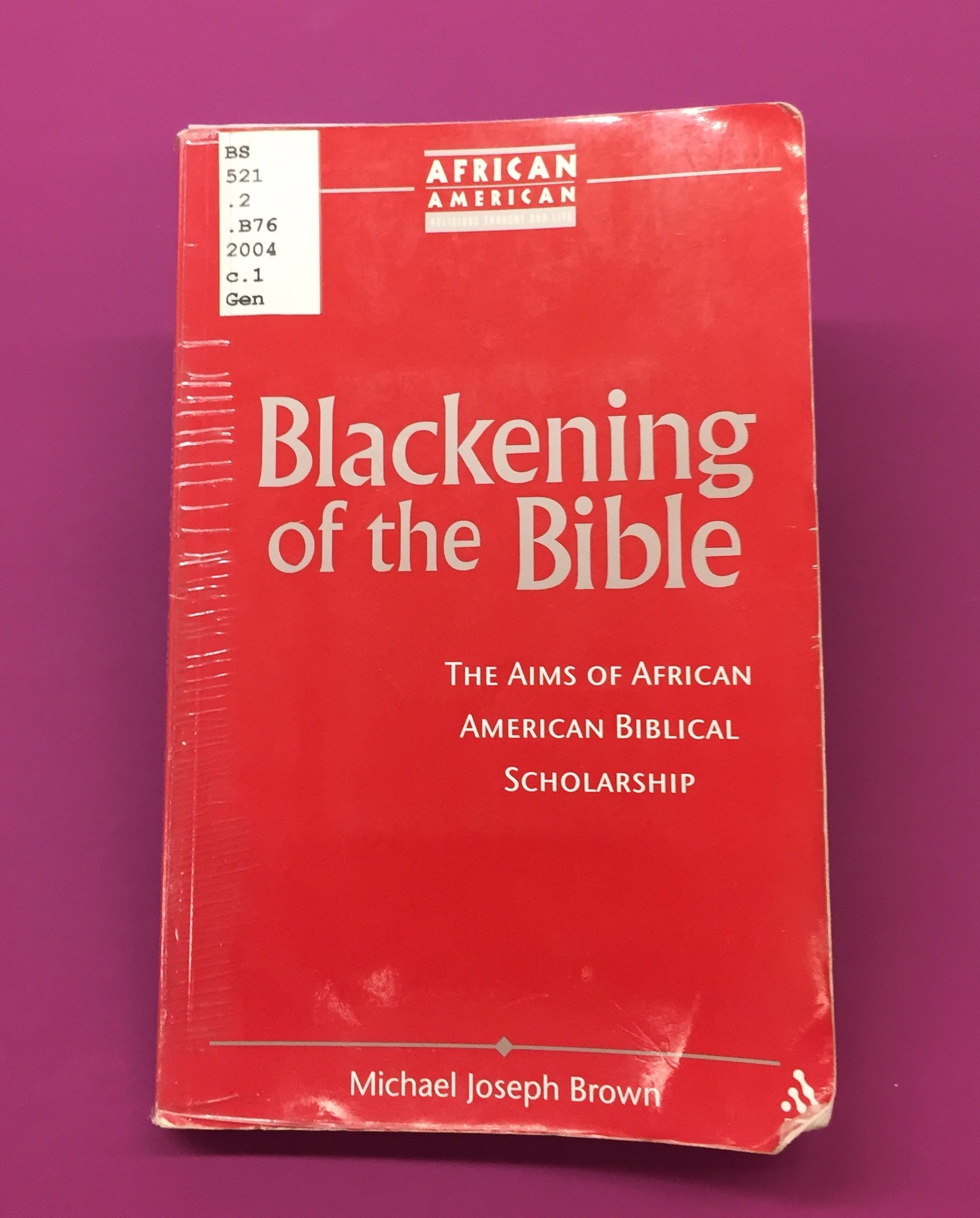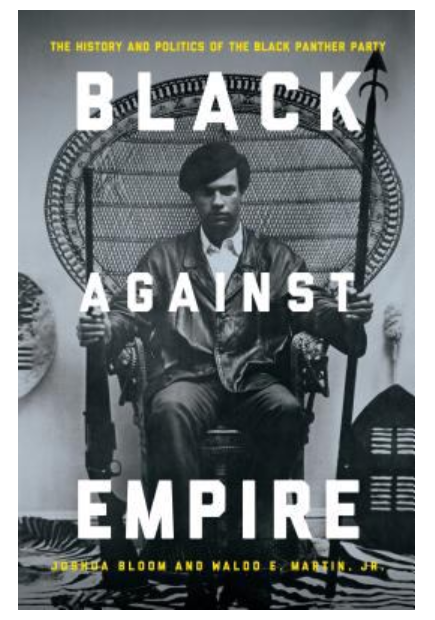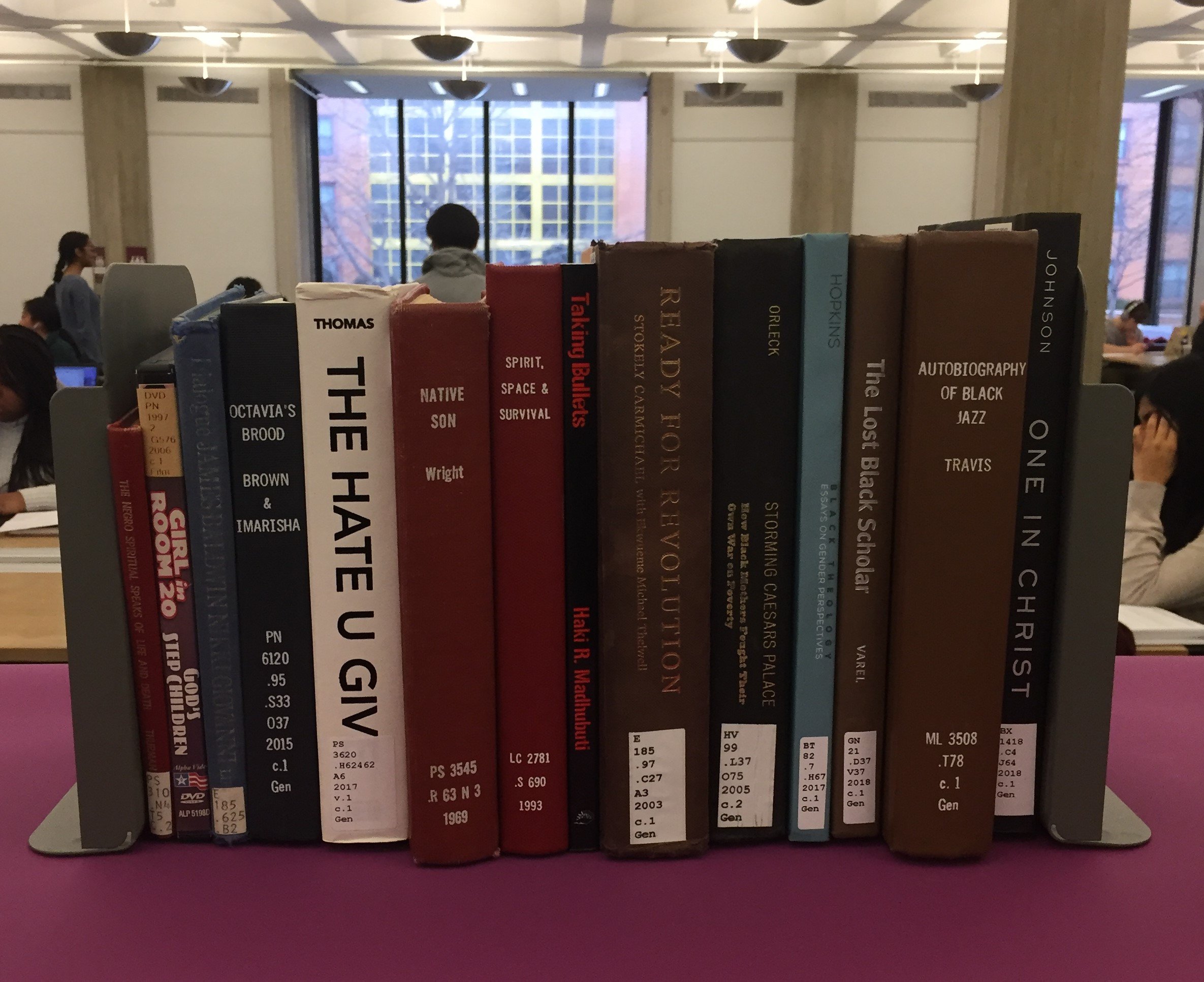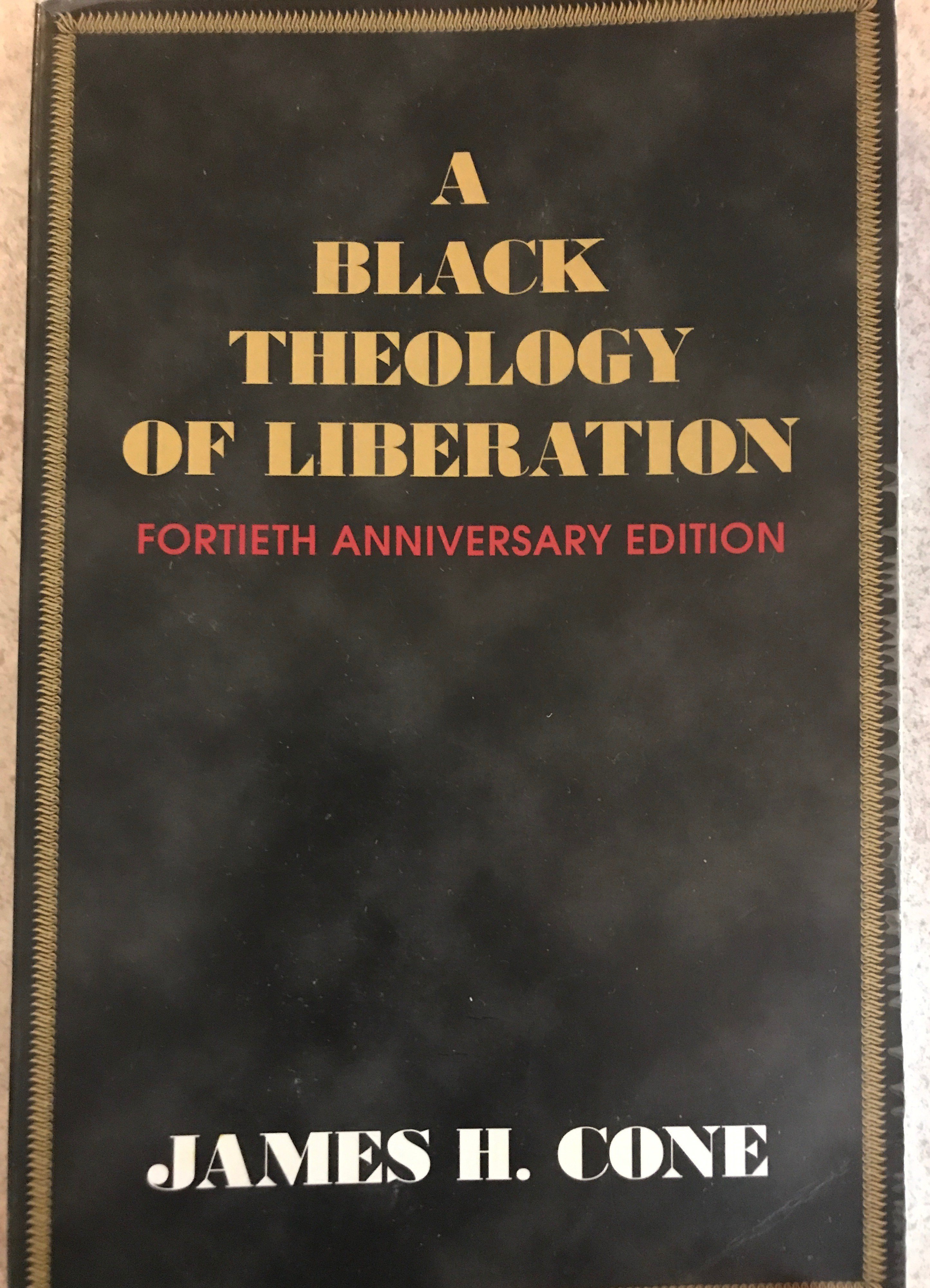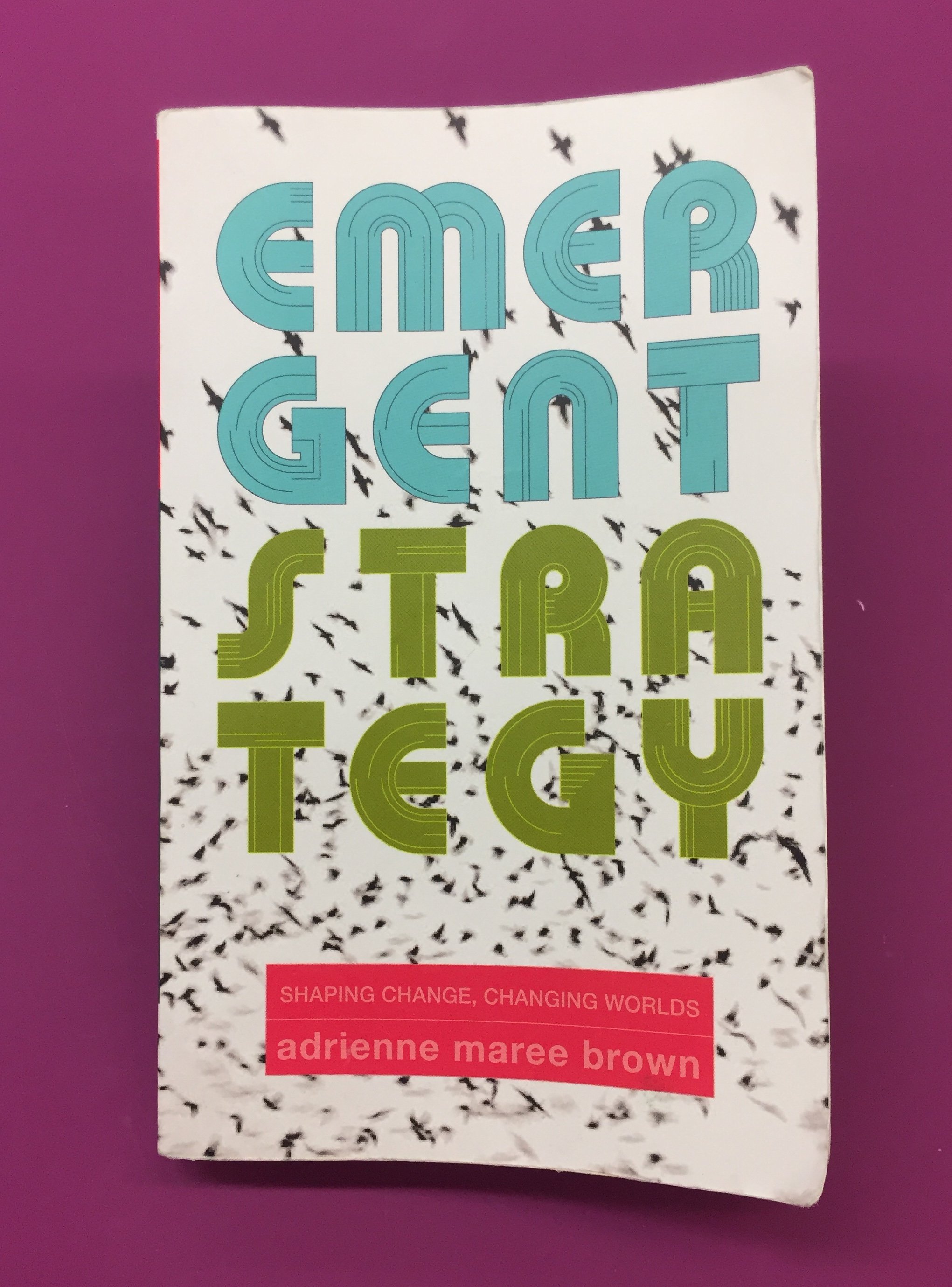Why these books?
All the materials in this exhibit were suggested by members of the UChicago community. These individual contributors shared the reasons behind their suggestions. For a full list of the materials suggested, see the Bibliography page.
- David Harris, Ph.D. student in Bible and the ancient Near East
- Christopher Iacovetti, Ph.D. student in Religion and Literature
- Anne Knafl, Bibliographer for Religion, Philosophy, and Jewish Studies
- Daniel Moerner, Assistant Professor of Philosophy
- Matthew Vega, Ph.D. student in Theology
- Sarah Zuniga, M.Div. candidate in the Divinity School
Brown, Michael Joseph. Blackening of the Bible: The Aims of African American Biblical Scholarship. Harrisburg: Trinity Press International, 2004.
Suggested by David Harris, Ph.D. Student in NELC
"Blackening of the Bible is an introduction to specifically African American hermeneutics of the Bible in which he argues for creating an intellectual space within the field of biblical studies for taking seriously the interpretations of marginalized communities. This book takes seriously the social location of the interpreter with respect to race, gender, class, cultural location, and ideological orientation, and the absence of objectivity that all of these imply. Brown surveys and critiques many hermeneutical modes used by African American scholars since the first African American was granted a PhD in Biblical Studies: from the search for Africans in the Bible in the forties and fifties to contemporary Womanist interpretations. Blackening of the Bible is an important survey of the evolution of the black hermeneutical enterprise—its aims, modes, challenges, as well as its practitioners, including Randall Bailey, Anna Julia Cooper, Charles B. Copher, Kelly Brown Douglas, Cain Hope Felder, bell hooks, and Renita J. Weems. This book should be read by anyone interested in biblical studies, or in African American biblical hermeneutics or black theology, whether within academia or in the larger society."
Bloom, Joshua, and Waldo E. Martin. Black against Empire: The History and Politics of the Black Panther Party. Berkeley: University of California Press, 2013.
Suggested by Christopher Iacovetti, Ph.D. student in Religion and Literature in the Divinity School.
"Black Against Empire is one of the most formative and rewarding histories I've read in years. It significantly reshaped my understanding not just of the BPP [Black Panther Party], but of Black history and US politics more generally."
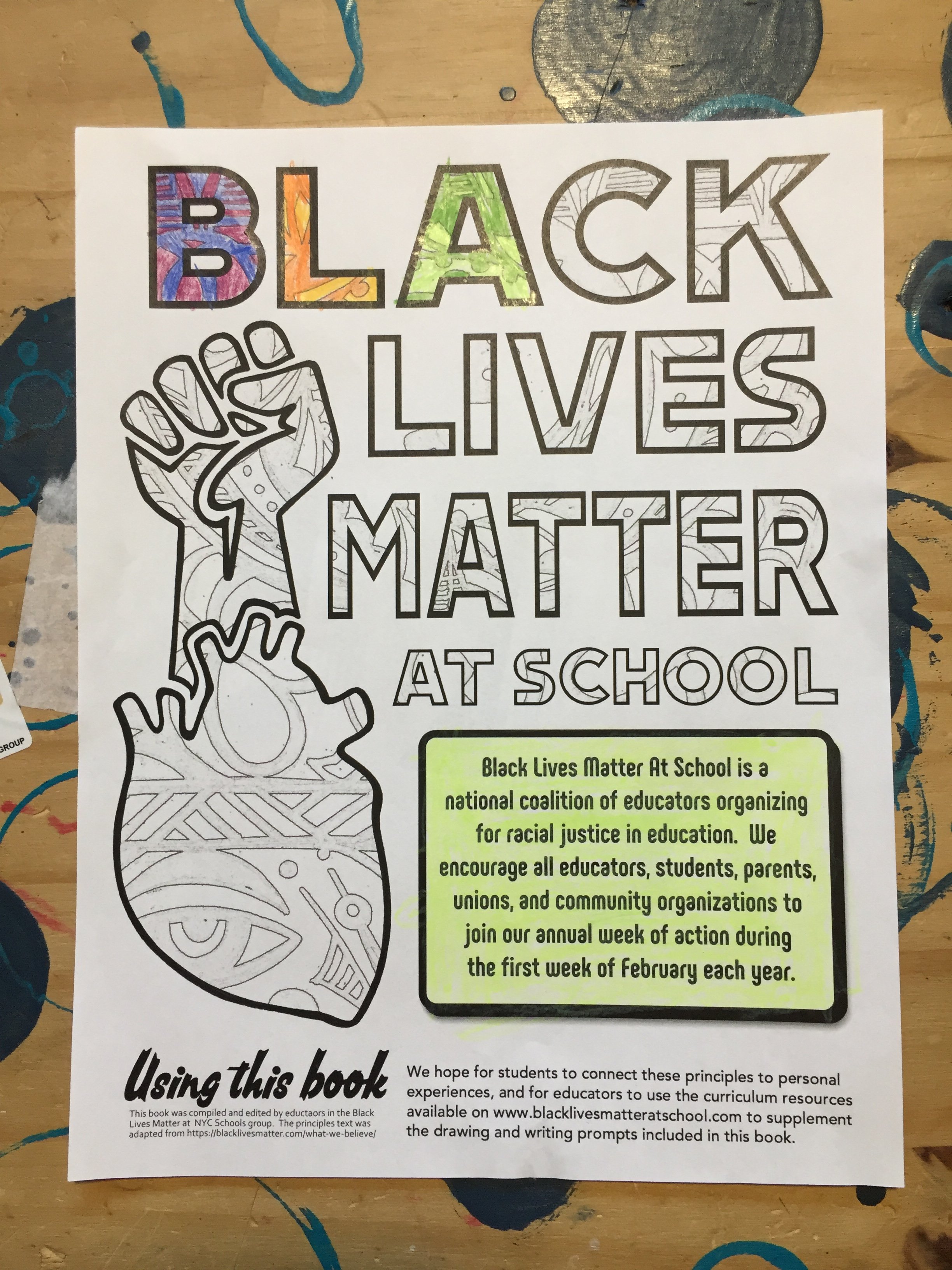
Garcia, Laleña. "Title Page." "What We Believe: A Black Lives Matter Principles Coloring Book." Illustrated by Caryn Davidson. Distributed by www.blacklivesmatteratschool.com.
Suggested by Anne K. Knafl, Bibliographer for Religion, Philosophy, and Jewish Studies at the University of Chicago Library
"This is a beautiful and useful resource for educators. It is based on the 13 guiding principles of the Black Lives Matter movement: Unapologetically Black, Diversity, Empathy, Restorative Justice, Loving Engagement, Black Families, Black Women, Queer Affirming, Transgender Affirming, Globalism, Black Villages, Intergenerational, Collective Value. The coloring pages are appropriate for all ages and are freely available, along with teaching resources for K-12 and college on the Black Lives Matter At School website. Caryn Davidson's designs served as the inspiration for the poster and web exhibit banner of the UChicago Celebrates Black History exhibit."
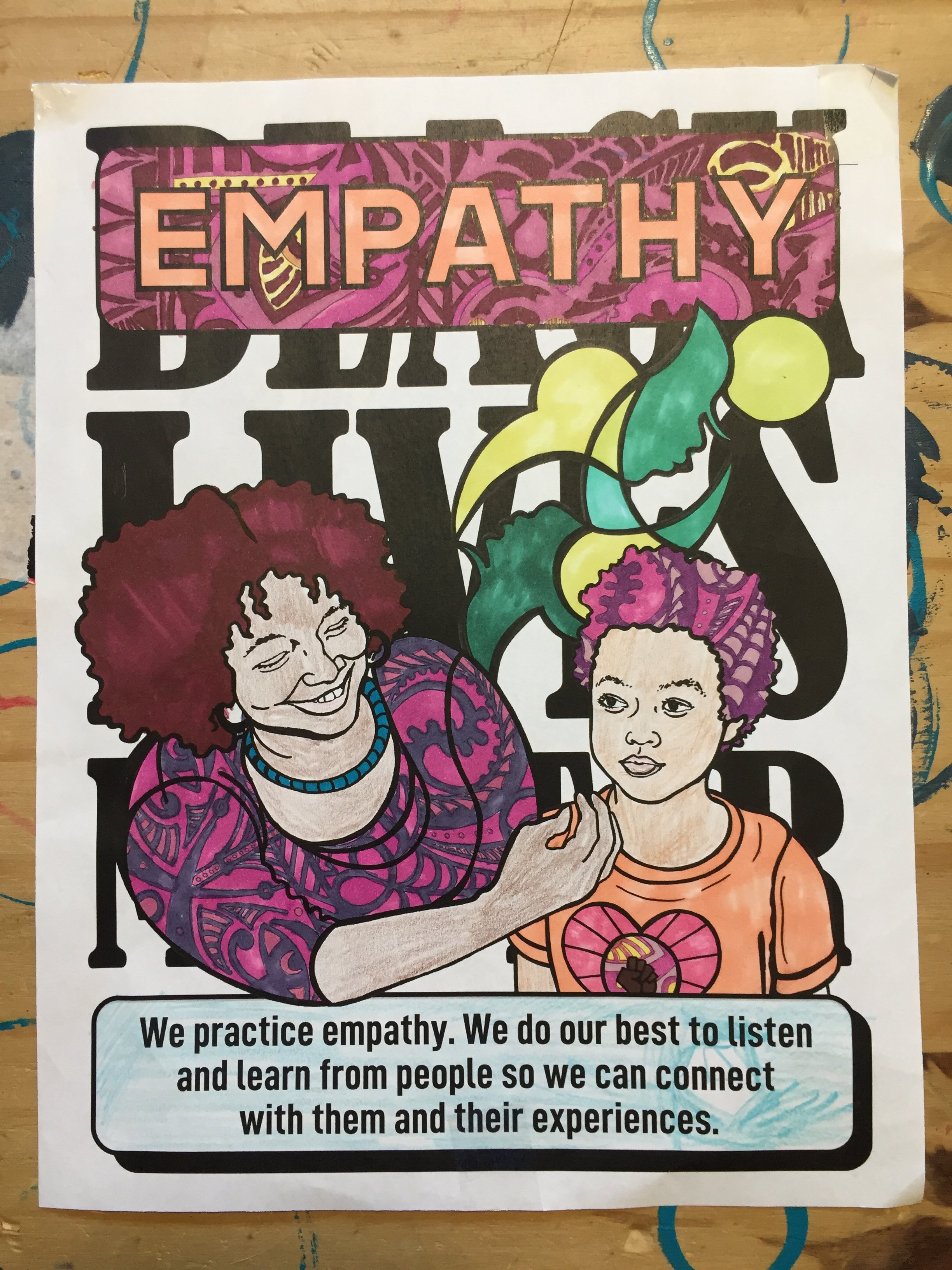
Garcia, Laleña. "Empathy." "What We Believe: A Black Lives Matter Principles Coloring Book." Illustrated by Caryn Davidson. Distributed by www.blacklivesmatteratschool.com.
Thomas, Angie. The Hate U Give. New York: Balzer + Bray, 2017.
Suggested by Sierra Meszaros, M.A. student in the Divinity School.
"I recommended The Hate U Give, and author Angie Thomas more broadly, for her representation of the complexities of black teenager-hood, a story that often gets essentialized in supporting characters. Often provide comic relief, or emotional support to a white, cis-gendered male or female lead character. Thomas writes in vernacular and Ebonics, and tells poignant stories of marginalization, police brutality, and the universal truths of growing up. She paints an image of black teenagers as thoughtful, capable, talented, and deeply loved. Their blackness is intentional, and in the end it is their strength."
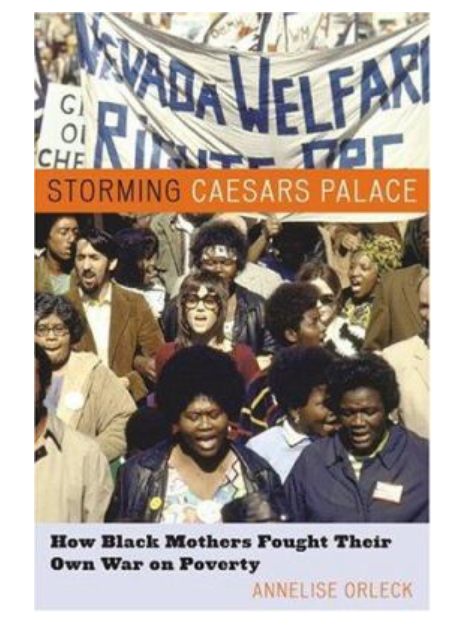
Orleck, Annelise. Storming Caesars Palace: How Black Mothers Fought Their Own War On Poverty. Boston: Beacon Press, 2005.
These two books were suggested by Daniel Moerner, Assistant Professor of Philosophy in the Philosophy Department
"What I love about both of these books is that they trace the ways in which black working mothers have constructed communities and built up a notion of shared solidarity in the face of byzantine and bureaucratic welfare systems and prison systems. I think they present wonderful models for what democratic, messy, community action can look like."
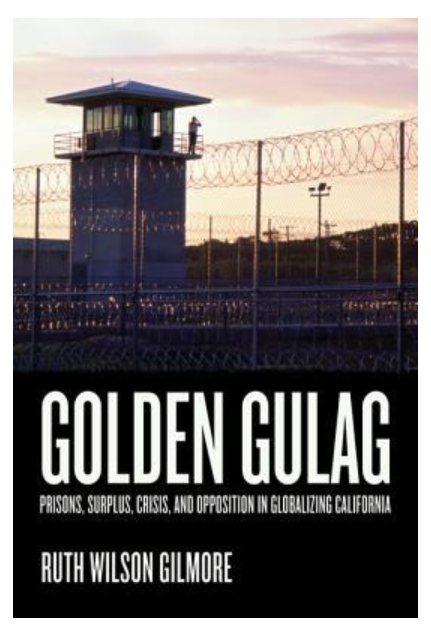
Gilmore, Ruth Wilson, and Ruth Wilson Gilmore. Golden Gulag: Prisons, Surplus, Crisis, and Opposition in Globalizing California. Berkeley: University of California Press, 2007.
Cone, James H. A Black Theology of Liberation. 20th anniversary ed. Maryknoll, NY: Orbis Books, 1990.
Suggested by Matthew Vega, Ph.D. student in Theology in the Divinity School
"I suggested a Black Theology of Liberation because James Cone is the greatest American theologian in history. His groundbreaking systematic work explicates various theological foci while intersecting it with both liberation and the contemporary moment of racialized America."
brown, adrienne maree Emergent Strategy: Shaping Change, Changing Worlds. Chico, CA: AK Press, 2017.
Suggested by Sarah Zuniga, Master of Divinity Candidate in the Divinity School
"adrienne maree brown introduces her work and herself in a way that, to me, connect herself with her audience in an intimate way. Her examination of emergent strategy reminds us what it means to be in community, how to connect, and how to love."
